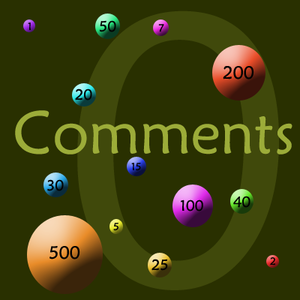 Lara and I recently had this question posed to us regarding Klout - a topic that can be quite controversial and for new social media users, confusing.
Lara and I recently had this question posed to us regarding Klout - a topic that can be quite controversial and for new social media users, confusing.
Klout. Does it matter? Who does it matter to? Why did my score recently change dramatically? It seems to me if “scores” can change that widely, that they can’t be very accurate.
Klout is a tool that claims to measure online influence. There is only one problem with this: influence is inherently unmeasurable. A person may be perceived as influential, but many factors can have an impact on why.
Klout is not:
- A social network
- A broadcast tool
- A big deal
Does Klout matter?
Absolutely - to some people. This is especially true for those who may be:
- Working with brands
- Building thought leadership/expertise on a topic
- Job searching
- Student grades
For others, Klout is just something that is there. Casual users with no professional tie to their social media use likely don’t have an interest in knowing how influential they are. For this group, there’s no benefit in knowing.
Recently, Klout rolled out its second algorithm change in the last year. The first occurred last October and scores fell dramatically (mine dropped from 68 to 58). The latest adjustment to the algorithm caused startling changes in scores, though supposedly they were mostly increases. Very few dropped compared to the adjustment last October so the fallout has been minimal.
Is it dependable?
It’s a fair point that if the algorithm keeps changing that it can’t be very accurate. However, prior to last October, it was ridiculously easy to ‘game’ the system and artificially inflate your score. As long as there’s an automated measurement, people will test and figure out how to “game” it.
Accuracy of influence measurement is hard to judge anyway. This is where we have to go back to the question of how to measure something (true influence) that is inherently unmeasurable.
The updates are actually meant to reflect the influence that users have more accurately and prevent (as much as possible) score manipulation.
Should Klout matter to you?
Not necessarily. I check my Klout about once a month out of curiosity and outside of that I just continue to do what I would normally do on social networks.
What should I do about Klout?
Klout (and others like PeerIndex and Kred) can give you a snapshot of whether or not your efforts are getting a good reaction from your audience. A stagnant or dropping score can be a signal to make some tweaks. A score that is steadily increasing can be an indication that you’re doing the right things.
The way you improve your Klout is the same way you create an engaged community:
- Focus your content.
- Be engaging with followers and those you follow.
- Add value - help with a problem, provide information, etc.
Klout can be a major distraction if you consciously try to increase your score.
Always remember that if you’re curious about how effective your efforts are, Klout is just one indicator among dozens. It’s good to know, but definitely not something to worry about.
What ways have you used Klout to help tweak your social media use?
Do you check your Klout? Have you noticed the number changing?


